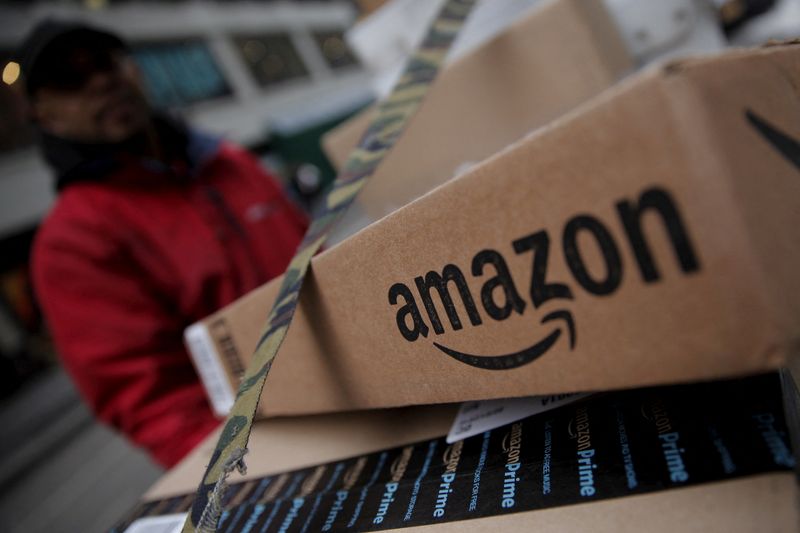By Mike Scarcella
(Reuters) - The U.S. Federal Trade Commission's lawsuit accusing Amazon.com (NASDAQ:AMZN) of abusing its retail market power to stifle competition faces hurdles in court, testing the scope of U.S. antitrust law and posing roadblocks for the agency, legal experts said.
The U.S. consumer agency, which enforces federal antitrust law, and 17 states filed their lawsuit against Amazon in Seattle federal court on Tuesday, asking a U.S. judge to consider an injunction and other penalties to combat alleged unlawful conduct.
Several legal experts told Reuters that the FTC faces a high bar in trying to show that U.S. consumers would be better off in a world without Amazon's policies in place.
The lawsuit said Amazon has unfairly given preference to its own products and that the company's policies punish merchants that want to sell products for lower prices on other platforms.
Under U.S. law, the FTC has the burden to prove that Amazon is not just a big market player with power but also that it has taken illegal steps to acquire or maintain its dominance. The agency also must define and prove the relevant markets, a key threshold issue.
Antitrust lawyer David Balto, a former policy director at the FTC, described the FTC's hard climb ahead as trying to surmount Washington state's Mt. Rainier in tennis shoes.
"You know, it's conceivable — you could get to the top — but it's 20,000 feet and it's going to be really cold," he said.
As part of the case, Amazon will have a chance to assert pro-competitive justifications for its alleged conduct, said antitrust lawyer Diane Hazel of law firm Foley & Lardner. Hazel said Amazon would need to show its reasons are "legitimate" in order to counter the FTC's claims.
Amazon's argument, said antitrust scholar Tom Cotter of the University of Minnesota Law School, will be "We provide consumers with access to a wide variety of goods at affordable prices quickly."
Indeed, Amazon general counsel David Zapolsky said in a statement the challenged policies have "helped to spur competition and innovation across the retail industry." Zapolsky said the FTC's complaint pretends that "everyday retail competition doesn't exist."
FTC Chair Lina Khan said in a statement Amazon used "punitive and coercive tactics" to unlawfully maintain a monopoly.
The FTC's lawsuit is related to but broader than a series of private consumer cases filed in recent years against Amazon that are pending in the same U.S. federal court.
The private antitrust cases offer an early window into some of the legal arguments Amazon could be expected to make to challenge the FTC's lawsuit.
In one of the cases, a prospective class action challenging the platform's pricing policies, Amazon's lawyers argued that no court "has ever condemned a business practice that requires low prices in a retail store for consumers."
Amazon is also fighting claims from another private civil lawsuit that said the company has stifled competition for shipping and fulfillment services.
U.S. District Judge Ricardo Martinez in April dismissed that lawsuit, saying consumer plaintiffs were not buyers of logistics services. But the court gave the consumers a chance to bring a new case.
Martinez, an appointee of former U.S. President George W. Bush, could be assigned to the FTC's lawsuit because the agency said several Amazon cases pending before him were related factually and legally to the new complaint.

Generally speaking, U.S. judges are "wary of using antitrust law to punish low-pricing behavior," said antitrust scholar Sean Sullivan of the University of Iowa's law school.
Sullivan said it is not always a clear line between "good low pricing" — based on market competition — and "bad low pricing" that helps a company acquire or maintain market power.